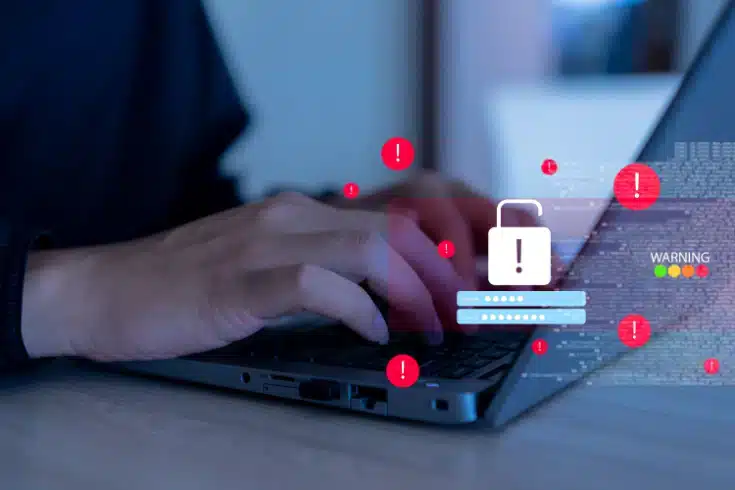What is the Proper Way to Keep Minutes from a Legal Perspective in System Development?

When a company entrusts another company with system development, it is often the case that the contract signed with the corporate seals of the CEOs and the requirement definition document created by the person in charge do not necessarily clearly specify what is to be created and by when. This is because in many system development projects, daily interactions such as emails and phone calls at the manager level, and meetings chaired by people at the managerial level, are used to finalize specifications that were initially vague, change specifications in response to changing circumstances, request additional features, and ask for cooperation on issues that arise.
From the perspective of smoothly advancing system development and preparing for the unlikely event of a dispute, the creation and management of documents is crucial for smoothly managing a single system development project.
In this article, we will explain from a legal perspective how to keep minutes and meeting materials used in progress meetings for system development.
Why Document Management is Crucial in System Development
In system development projects, keeping records of discussions during confirmation meetings and the progress and process of the project is extremely important from a legal perspective. The reasons for this can be summarized in the following two points:
To Prevent Disputes Later On
System development typically involves a project that proceeds with numerous parties involved on both the user and vendor sides. Therefore, if there is a discrepancy in understanding between the user and vendor sides about who is responsible for what roles and what obligations they undertake, it could hinder the progress of the project later on.
Also, the fact that many people are involved in the project means that communication troubles, such as “people are saying slightly different things and it remains unknown who is speaking the right thing,” are likely to occur.
Compiling the contents of the formed agreement in writing is meaningful in confirming whether there is a discrepancy in understanding between the two parties, and compiling the same thing into a document that can be confirmed by the parties involved (at each individual’s timing) will lead to aligning the steps of the parties involved.
By the way, utilizing legal knowledge as a means to prevent the occurrence of disputes in advance is sometimes referred to as preventive legal affairs.
As a Measure in Case of a Dispute
Also, if we explain the importance of document management from a slightly different perspective than the aforementioned preventive legal affairs, we can mention “crisis management” in anticipation of situations where a dispute actually occurs.
Let’s assume a situation where a dispute arises, such as when a project is interrupted before the deliverables are completed, or when the original deadline is not met. This applies to both the user and vendor sides, but even if you want to say, “I have something to say about the situation that has occurred,” if the records are not documented, you will not be able to prove your point and may be at a disadvantage in court.
Especially in troubles stemming from “not meeting the deadline,” the cause of the problem, such as “when and how the problem was discovered,” “when a request for specification changes was made,” and “how the vendor responded to the user’s request for additional functions,” often becomes a crucial point that can influence the outcome of the trial. If there are many issues of “said, didn’t say” at that time, it will be difficult to expect a fair dispute resolution.
What is especially important in the minutes of a system development meeting?

Types of meetings in system development
In system development projects, various meetings are often planned and conducted as the project proceeds. This is not surprising considering that many people are involved in the project. Programmers and engineers who implement the program at the development site often hold regular meetings to check the progress of their work. They may also review the implemented code to ensure there are no issues with maintainability or security vulnerabilities.
In addition to these meetings at the development site, company directors and responsible persons with authority may also hold meetings. These meetings often focus on the overall direction and policy of the development project. Such meetings, held at the management level to grasp important matters, are often referred to as “steering committees”.
The Steering Committee requires special attention
As mentioned earlier, various meetings are planned in the system development field depending on the position of the people involved and the purpose of the meeting. From a legal perspective, the steering committee is the most important. Compared to progress check meetings and review meetings at the manager level, the steering committee should be particularly aware of the importance of documentation for the prevention of various disputes and measures in the event of a dispute. The reasons for this are:
- Due to the nature of the steering committee being a meeting hosted by persons at the management level, it often involves important decision-making and is likely to be considered important legally as it indicates the understanding of both users and vendors.
- Usually, the content of manager-level meetings is often reflected in various design documents and specifications, so it is hard to imagine that there would be a problem with the absence of documentation. (However, if even these are poorly documented, improvements may be needed.)
These are some of the points that can be raised.
Court Cases Related to Steering Committee Meeting Minutes
Below, we introduce a case where the minutes of a steering committee meeting were treated as significant evidence in an actual trial. The case cited in the judgment below involves a system development project that stalled midway, and the vendor’s breach of project management obligations was recognized. The content of the minutes in this case was of great significance in the trial, as it demonstrated the initial understanding of both the vendor and the user.
The vendor points out that the contents of the minutes of the Steering Committee, on which the progress of this system development is based, have been amended by the user and do not necessarily reflect the actual work. However, the Steering Committee was established for the purpose of making decisions at the senior management level of this system development, and the project managers from both the vendor and the user participated, sharing overall evaluations, actual progress of schedules and tasks, and making decisions on important issues. The key points discussed were recorded by the vendor in the minutes by the morning of the second business day after the meeting, registered in the minutes database, and the final decisions of the meeting were recorded in the minutes. In finalizing the minutes, both the vendor and the user, recognizing the significance of recording the work in the minutes, examined the content and expression, and it can be inferred that they confirmed the content as reflecting the actual situation of the meeting. Especially, the vendor, who is engaged in system development, must have been well aware of the significance and method of creating such minutes. Therefore, it can be said that it is appropriate to treat the finalized minutes as reflecting the actual work of the Steering Committee, and unless special circumstances are recognized, it is appropriate to recognize that the contents described therein are the ones summarized at the Steering Committee on the relevant date.
Tokyo High Court, September 26, 2013 (Heisei 25)
The court’s stance seems to be that if the minutes of a meeting created by mutual agreement between the vendor and the user are in writing, they can be expected to have a certain presumptive force as “evidence”. From another perspective, if you make too casual a notation in the minutes, there is a risk that it will become evidence as it is, and you should be very careful about this.
What Specific Items Should Be Recorded in Meeting Minutes?

Meeting minutes hold significant importance as evidence in the event of a lawsuit, and even when not in litigation, they facilitate smooth negotiations between parties. So, what specifically should be documented and recorded in the minutes? Let’s organize this below.
Items to be Recorded from the Vendor’s Perspective
From the vendor’s perspective, they bear the project management responsibility as system development experts for the project.
Considering these responsibilities, the vendor should especially record:
- The fact and date of completion of each development process
- The history of responses to requests from the user side for specification changes or additional functions
- The measures taken and their background to seek cooperation when the progress of development work is delayed due to the user’s convenience
Items to be Recorded from the User’s Perspective
Of course, as the system is for internal use by the user, they also have a certain obligation to cooperate with the vendor’s development work in system development.
- The history of the user side telling what they should have told such as the needed function, its outlook, etc.
- The history of various troubles that occurred in the vendor’s process (for example, sudden departure of members, delay in the development process schedule due to lack of investigation by the vendor, and its cause)
Regarding the above point 2, it is particularly prone to unexpected troubles when developing a new system while abolishing the old system. There are often troubles when migrating data from the old system to the new system.
Conclusion
The above serves as a guideline on how to keep meeting records in system development from a legal perspective. Not only practical how-tos, but also deepening understanding of the connection between themes such as “law”, “system development”, and “document management” is important. System development, which tends to involve many people and organizations and easily leads to large-scale commercial transactions, makes it important to prevent and deal with associated disputes. From the necessity of evidence preservation from a legal perspective, the existence of “documents” that can be objectively confirmed by anyone has significant meaning.
Indeed, fully verbalizing all interactions and project transitions may be burdensome and not realistic. However, it is important to identify what are legally important matters and to appropriately document these important matters. This point should be widely recognized by everyone involved in business, regardless of whether they are legal experts or not.
Category: IT
Tag: ITSystem Development





















